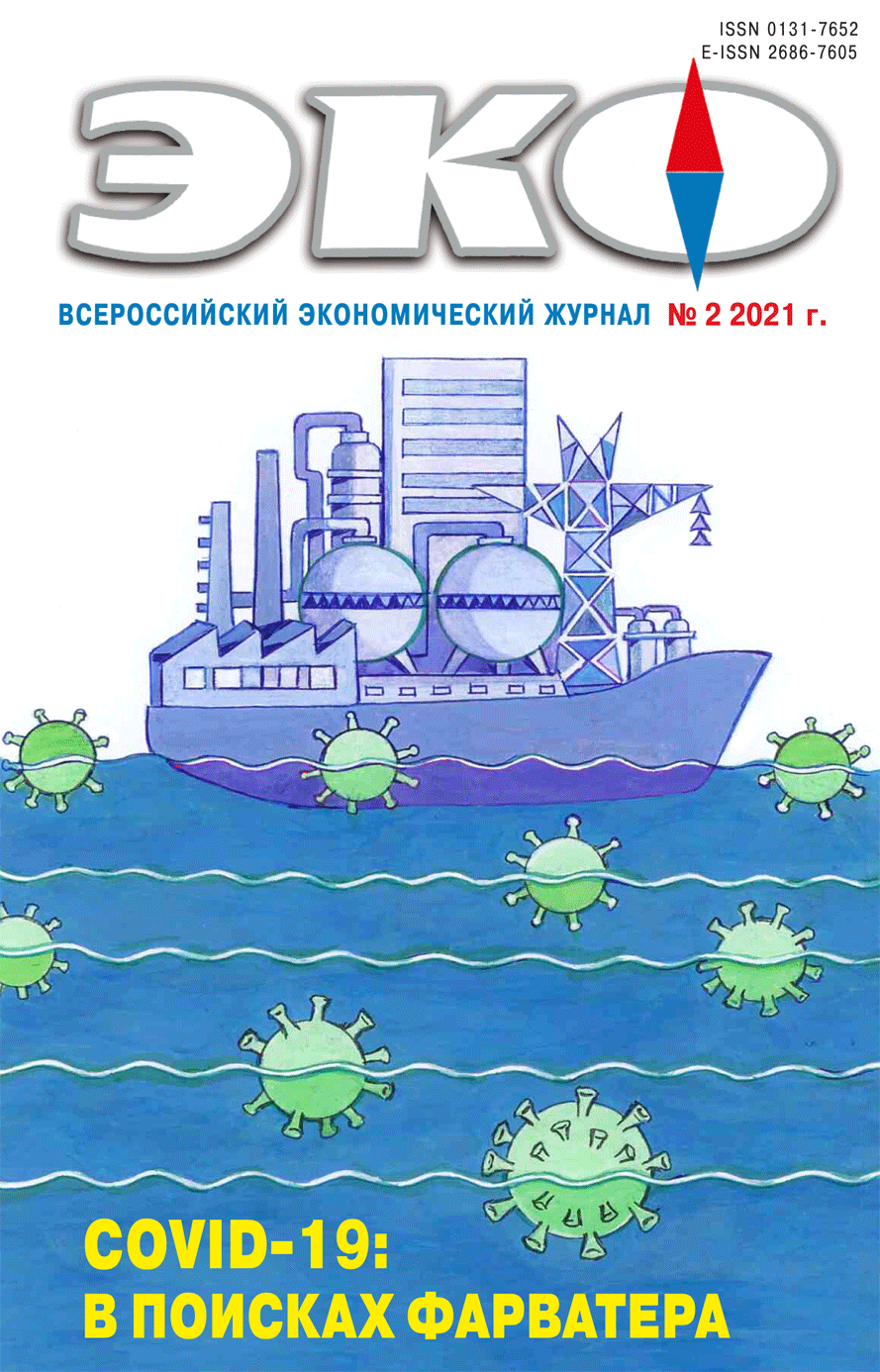Тема номера: COVID-19: В поисках фарватера
Published 2021-02-01
Keywords
- ecotourism,
- sustainability,
- COVID-19 pandemic,
- conservation,
- market-based instruments
How to Cite
1.
Mkrtchyan Г, Blam И. Ecotourism and Conservation in time of COVID-19 Pandemicand Beyond. ECO [Internet]. 2021 Feb. 1 [cited 2025 Sep. 19];51(2):25-39. Available from: https://ecotrends.ru/index.php/eco/article/view/4194
Abstract
The COVID-19 pandemic has attracted attention to environmental and financial risks related to nature-oriented tourism. The opinion well-established in the modern economic literature that ecotourism is the best alternative to non-sustainable use of natural resources and an important (sometimes the only one) source of financing conservation has been put under revision.Recovery of ecosystems observed after travel restrictions were implemented in order to mitigate the expansion of the coronavirus has attracted attention to large-scale damaging impact of ecotourism on ecosystems located on popular tourist routes. The urgent need for a tight control over the recreational burden and building infrastructure adapted to the needs of protected areas has been confirmed. At the same time, a sudden drop in the tourist flow in the regions where nature-oriented tourism was the main source of financing nature-preserving activities has caused a decline in the number of rare and endangered species of flora and fauna, a considerable rise in the number of cases of illegal use of natural resources, and a steep decline in the living standards of the local population.After analyzing the current situation, the authors conclude that financing of nature-preserving activities should not be done only on the basis of ecotourism revenues but should alsobe supported by governments and international organizations. Public-private partnership could provide for efficient development of ecotourism in protected areas subject to the fulfilment of all ecological requirements, promote social support to development of specially protected natural areas network, attract additional money to finance nature-preserving activities.References
- Блам Ю. Ш., Блам И. Ю. К вопросу о развитии экотуризма в России // Регион: экономика и социология. 2020. № 3. С. 301–317. DOI: 10.15372/REG20200312.
- Васильева А. Красную книгу снова попытались отредактировать // Коммерсантъ.2020. 23 апр. URL: https://www.kommersant.ru/doc/4329041?from=main_4#id1822570.
- Давыдова А. Вирус обеспечил природе передышку // Коммерсантъ. 2020. № 151. С. 2. URL: https://www.kommersant.ru/doc/4465336.
- Шаповалов А., Давыдова А. Вирус вседозволенности // Коммерсантъ. 2020. № 72. С. 2. URL: https://www.kommersant.ru/doc/4327027.
- Шаповалов А. Экологию перевели на режим самоулучшения // Коммерсантъ. 2020. № 111. С. 2. URL: https://www.kommersant.ru/doc/4391780.
- Capocchi, A., Vallone, C., Pierotti, M., Amaduzzi, A. (2019). Overtourism: A Literature Review to Assess Implications and Future Perspectives. Sustainability. 11, 3303. DOI: https://doi.org/10.3390/su11123303.
- Fletcher, R., Büscher, B. (2017). The PES conceit: Revisiting the relationship between payments for environmental services and neoliberal conservation. Ecological Economics. Vol. 132. Pp. 224–231. DOI: 10.1016/j.ecolecon.2016.11.002.
- Gillespie, T.R., Leendertz F. H. (2020). COVID-19: protect great apes during human pandemics. Nature. No. 579 (7800). DOI: https://doi.org/10.1038/d41586–020–00859-y
- Manenti, R., Mori, E., Di Canio, V., Mercurio, S., Picone, M., Caffi, M., Brambilla, M., Ficetola, G.F., Rubolini, D. (2020). The good, the bad and the ugly of COVID-19 lockdown effects on wildlife conservation: Insights from the first European locked down country. Biological Conservation. Vol. 249. 108728. DOI: https://doi.org/10.1016/j.biocon.2020.108728.
- Rangus, M., Bozinovski, B., Brumen, B. (2018). Ch. 13. Overtourism and the green policy of Slovenian Tourism. In Responsible Hospitality: Inclusive, Active, Green / Gorenak, M., Trdina, A., Eds. University of Maribor Press: Maribor, Slovenia. 264 p. DOI 10.18690/978–961–286–226–8.
- Romão, J., Neuts, B., Nijkamp, P., Shikida, A. (2014). Determinants of trip choice, satisfaction and loyalty in an eco-tourism destination: a modelling study on the Shiretoko Peninsula, Japan. Ecological Economics. Vol. 107. Pp. 195–205. DOI: https://doi.org/10.1016/j.ecolecon.2014.07.019.
- Rutz, C., Loretto, M., Bates, A.E. et al. (2020). COVID-19 lockdown allows researchers to quantify the effects of human activity on wildlife. Nature Ecology & Evolution. Vol. 4. Pp. 1156–1159. DOI: https://doi.org/10.1038/s41559–020–1237-z.
- Świąder, M. (2018). The implementation of the concept of environmental carrying capacity into spatial management of cities: A review. Management of Environmental Quality. Vol. 29. No. 6. Pp. 1059–1074. DOI: https://doi.org/10.1108/MEQ-03–2018–0049.
- Статья поступила 06.09.2020.

